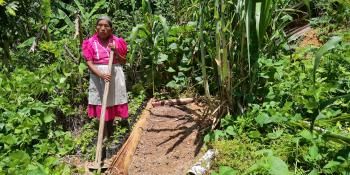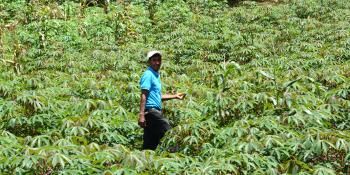Understanding climate information services for better communication
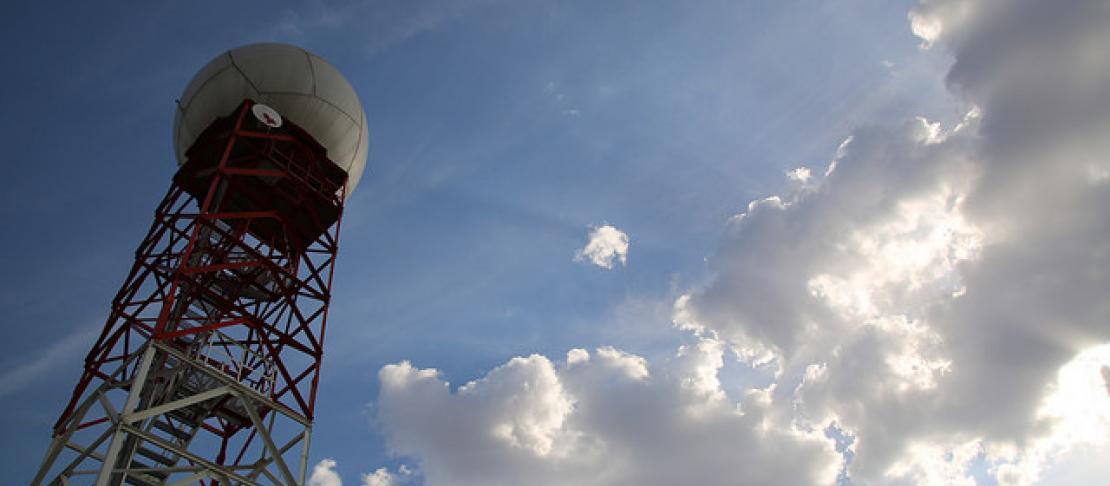
Training journalists on how to communicate weather and climate information to farmers.
Due to the so called 'complicated content' of climate information, related articles and news were considered uninteresting to many journalists.”
Goretti Uwizeyimana, Public Relations and Communications Officer, Ministry of Agriculture and Animal Resources (MINAGRI), Rwanda
The Rwanda Climate Services for Agriculture (RCSA) project, led by the CGIAR Research Program on Climate Change, Agriculture and Food Security, organized a training workshop between 27 and 28 March in Kigali for journalists and communication experts from different media outlets to enhance their communication of climate information services to different users and improve their understanding of it.
The two-day training was organized through the Agriculture Information and Communication Program (AICP) of the Rwanda Ministry of Agriculture. The 27 participants included journalists, the AICP staff, the Youth Engagement in Agriculture Network and the Information Technology team from MINAGRI. Three trainers from the International Center for Tropical Agriculture (CIAT), the Rwanda Agriculture Board (RAB) and Meteo Rwanda facilitated the training.
Learning about the use of climate information services
During the workshop, Serge Senyana, the meteorologist in charge of the Weather/Climate Services and Applications Division at Meteo Rwanda, explained the basic concepts of weather and climate information to the participants. Concepts included seasonal forecasts, timescales for prediction, and climate risks, among others.
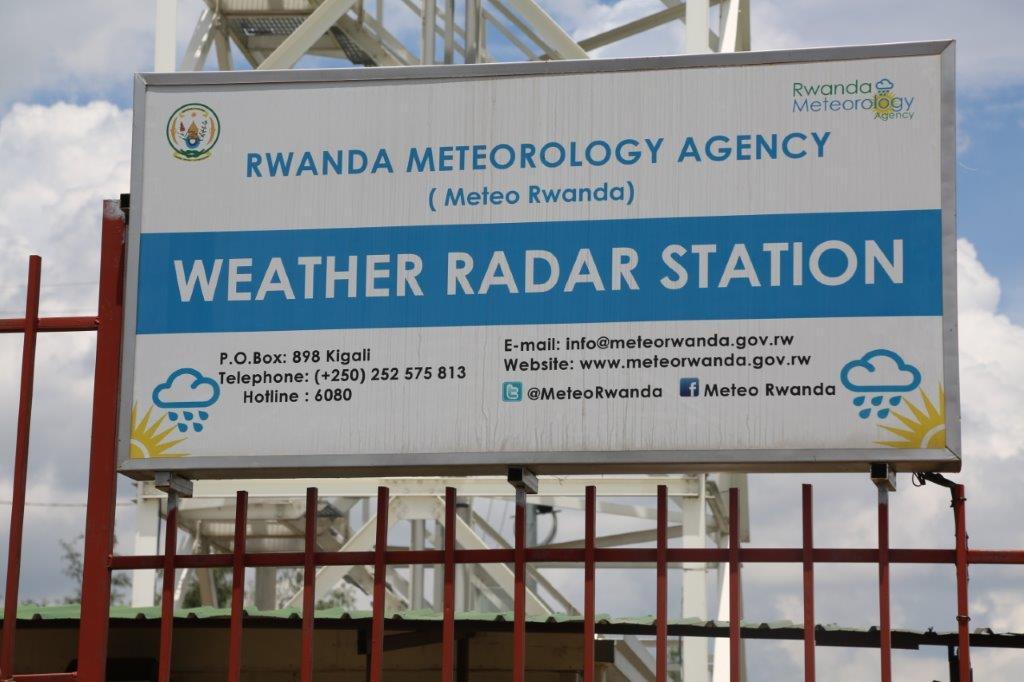
At the weather radar station. Photo: Alex Nyandwi (AICP/MINAGRI)
The RCSA project leader explained why climate information services are important, how climate-related risks affect farmers and through which mechanisms they can benefit from the services. He also explained the partnerships for scaling up climate services for Rwandan farmers, mentioning that climate information like planting dates, length of the season, dry spells, etc., is very useful for farmers and that different communication channels have to be used so that farmers get the appropriate information.
Farmers value climate information they receive, and journalists are a very important channel to share this information.”
Michel Kabirigi, Soil Expert, Rwanda Agriculture Board (RAB)
Participants learned about climate information services products in Rwanda and they discussed the needs of farmers in order to learn how to transmit climate information better. Journalists emphasized that farmers need to receive the information in such a way that they can easily understand and apply it.
Production and processing of climate information
Journalists said they found it challenging to communicate climate information since they could not easily understand and interpret the information released by Meteo Rwanda. Some of them mentioned that they did not communicate such information, fearing that listeners or readers would ask for clarifications that they were not able to provide.
To address journalists' knowledge gaps, the participants learned how climate information is produced, processed and analyzed before being released. The participants visited the weather radar, the control room and the monitoring room located at Maranyundo, Nyamata sector in Bugesera District.
Godfrey Habukuri from Meteo Rwanda explained the process of information production, processing, and analysis. Ange Soubirous Tambineza, AICP's Manager, called on all journalists to take climate information seriously since it is so important to their listeners and for farmers in particular.
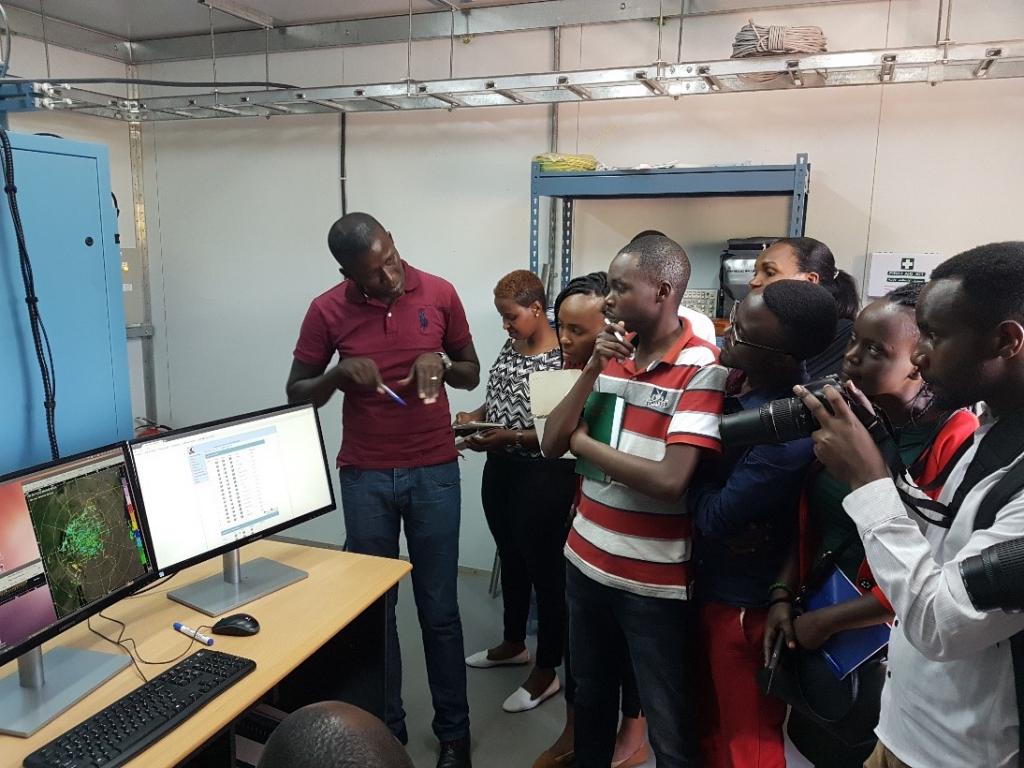
Godfrey Habukuri explaining to journalists the process of climate information production, processing, and communication. Photo: Y. Munyangeri (CIAT)
Communication experts appreciated the training received and summarized some of their lessons learnt. They shared that since the climate is changing, farmers need appropriate information to be able to cope with this. They emphasized that media is the primary communication channel for disseminating climate information services. Journalists are trusted by farmers and they can reach many of them. After the training, journalists now better understand the risks arising from ignoring climate information available from Meteo Rwanda.
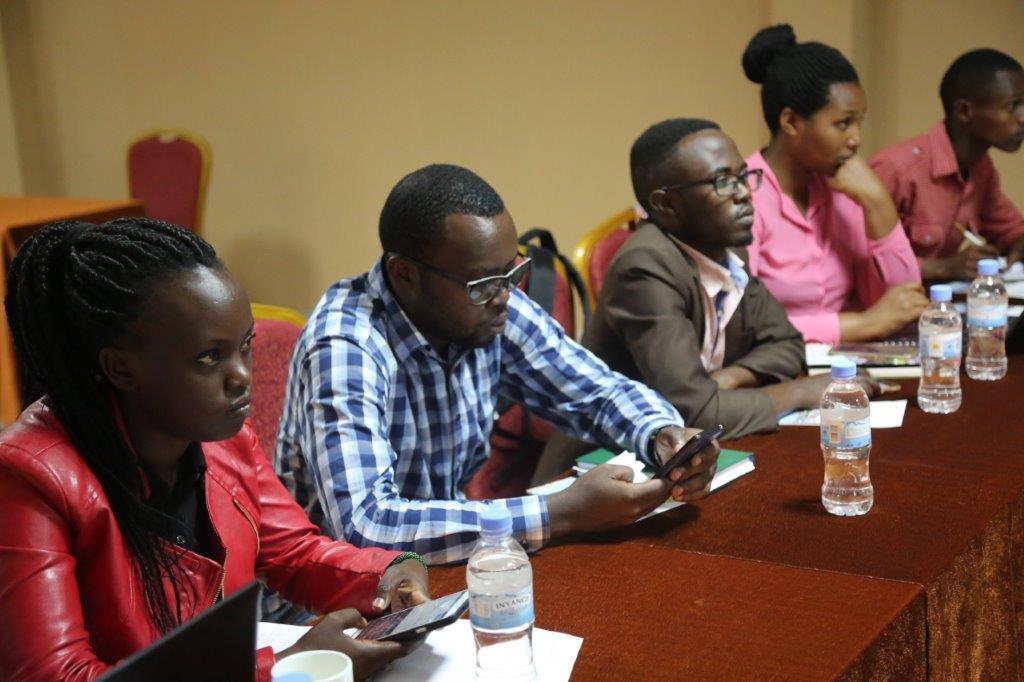
Journalists at the training. Photo: Alex Nyandwi (AICP/MINAGRI)
Trained journalists emphasized that information producers should consider specific farmers’ needs before producing and sharing the information. Journalists suggested more collaboration between climate information services producers and media outlets for better dissemination of the information.
Read more:
- News article: Smallholder farmers say access to climate information bearing fruit, The New Times Rwanda
- News article (Swahili): I Nyamata hari Radar itanga amakuru buri 7min ku iteganyagihe ry’u Rwanda, Umuseke
- News article (Swahili): Birashoboka ko umuhinzi yabona umusaruro wikubye inshuro eshatu, NONAHA
The Rwanda Climate Servies for Agriculture project is supported by USAID Rwanda and coordinated by the CGIAR Research Program on Climate Change, Agriculture and Food Security (CCAFS). Main partners include Meteo-Rwanda, MINAGRI, Rwanda Agriculture Board (RAB), International Centre for Tropical Agriculture (CIAT), International Livestock Research Institute (ILRI), World Agroforestry Centre (ICRAF), International Research Institute for Climate & Society (IRI) based at Columbia University, Reading University, Radio Huguka, DERN, N-Frnds, and Caritas (Caritas Kibungo, Caritas Butare and Caritas Kibuye).
Yvonne Munyangeri is Project Assistant for the Rwanda Climate Services for Agriculture project, based at CIAT Rwanda in Kigali. Gloriose Nsengiyumva works with the Rwanda Climate Services for Agriculture project, based at CIAT Rwanda in Kigali. Desire M. Kagabo is the Coordinator of the Rwanda Climate Services for Agriculture project, based at CIAT Rwanda in Kigali.

